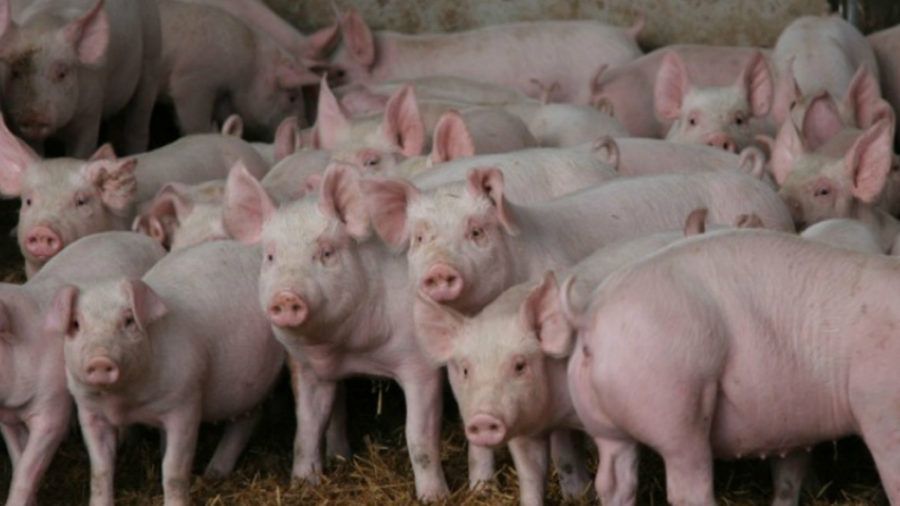
Scientific Wisdom Behind Prohibitions: The Flesh of Swine

Pigs transmit a large number of bacterial, viral and parasitic diseases
Pork accounts for 36% of the world’s meat intake. Interestingly, although Christians eat pork it is prohibited in the Bible and there is no mention in the Bible that Jesus ever ate pork.
“You shall not eat any of their flesh, and you shall not touch their carcases; they (pigs) are unclean to you.” (Leviticus, 11:7-8)
Certainly, God, in His wisdom, has forbidden pork in His revealed Books for a reason. In the following paragraphs, we try to provide some scientific reasons. Nonetheless, there are, most likely, other physical, behavioral, mental and spiritual risks which are yet to be discovered.
Risks of microbial infections
The number of microbial infectious diseases transmitted from pigs to man is rather large. They include viral, bacterial, fungal and parasitic diseases. It should be mentioned that some of the following diseases may be also transmitted by consumption of some other animals.
- Viral diseases which include: influenza (type A), Japanese encephalitis, Vesicular stomatitis, Epstein–Barr (human herpes virus 4), Foot and mouth disease, Hepatitis E.
There have been several pandemics of swine flu. The most recent pandemic outbreak was in 2009.
In 1918, a pandemic swine flu (nicknamed “the Spanish flu”) infected 500 million people (20 to 40% of the world’s population). From 50 to 100 million was killed.
- Bacterial infections like undulant fever (Brucella), diarrhea (Escherichia coli), typhoid (Salmonella spp.), skin infections and bacteremia (Staphylococcus aureus), enteritis and diarrhea (Yersinia enterocolitica), tuberculosis (Mycobacterium spp.).
- Parasitic protozoan infections with parasites like Toxoplasma gondii and Sarcocystis spp., and helminthic infection with worms like pork tapeworm and trichina, pinworm, hookworm, and Ascaris. The following are two dangerous worms acquired through pork consumption:
Tapeworm
Humans are directly infected from pork meat contaminated with cysts of the worm cysticercus, which matures in the intestine into a 2-3 meter tapeworm. Segments of the worm loaded with eggs are detached and released with feces into the environment to be eaten by pigs where they hatch, invade the blood and encyst in the tissues of different organs.
In addition to consuming the nutrients of the infected person, if somebody ingests tapeworm eggs, the hatched larvae in the intestines migrate through blood and form cysts in different tissues. If the cysts happen to occur in the brain, they may cause seizures and serious brain damage.
Trichina Worms (pork worm)
Trichina Worms are commonly found in the muscles of swine in the form of cysts. If meat or meat products of infected pigs are eaten insufficiently cooked, the cysts grow in the intestine of humans into adult worms which mate to produce thousands of new larvae. The new larvae travel through the blood to encyst in human muscles causing fever and severe pain. Cysts in the heart or brain cause fatal myocarditis and encephalitis.
Risks of serious chronic diseases
- Pork meat is rich in fats, which may contain up to 32% polyunsaturated fatty acids (mainly omega-6). Excess omega-6 contributes to diseases such as impaired immune function, inflammation, fatty liver, heart diseases, increased blood pressure, increased blood sugar levels and obesity.
- It was reported that pork consumption was strictly proportional to dangerous diseases like liver cirrhosis and cancer, and multiple sclerosis.

Swine flu causes severe symptoms (left). The number of dead people in the swine flu pandemic in 1918 in the city of Philadelphia overwhelmed the ability to handle the bodies which were buried without coffins, in mass graves

Tapeworm (left) and Cysticercosis in brain caused by tapeworm (right)

Trichina worm(left) and Trichina cysts in muscles (right)
Therefore, these diseases are less common in Muslim countries where pork is forbidden and in countries like Brazil where beef consumption far exceeds pork consumption.
Risks to workers in pork production
- Workers in pork production (hog farming) have an increased risk of reduced hand strength and respiratory symptoms.
- Workers in the pork meat industry are at risk of suffering from progressive inflammatory neuropathy (PIN). This is a disease that was identified in 2008 by the Centres for Disease Control and Prevention.
The condition is characterized by acute paralysis, pain, fatigue, numbness, and weakness, especially in extremities. It was initially believed that workers might have contracted the disease through inhaling aerosols from pig brains blown through a compressed-air hose and that this exposure to pig neural tissue induced an autoimmune response that might have produced their mysterious peripheral neuropathy.
- Workers in pork production are also liable to acquiring microbial infections.

